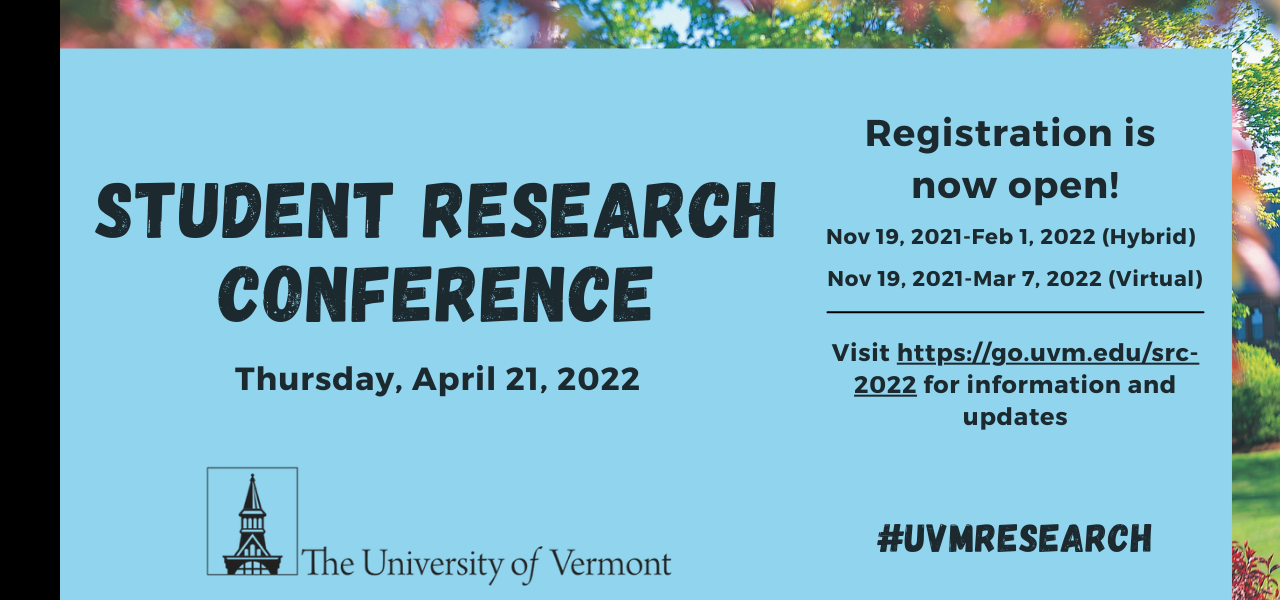Decreased ability to extinguish conditioned fear response as a predictor of impulsivity in adults with Post Traumatic Stress Disorder
Conference Year
2022
Abstract
25% of people who experience a potentially traumatic event (PTE) develop Post Traumatic Stress Disorder (PTSD) within 12 months (Zatzick et al., 2007). Individuals with PTSD face an increased risk for engaging in impulsive behaviors; the presence of these behaviors exacerbates impairments associated with PTSD and complicate the treatment and recovery (Roley et al., 2017) (Goldstein et al., 2016). Using statistical methods, the present project examines the associations between difficulty extinguishing fear-potentiated startle response with increased impulsivity among adults with PTSD. An association is expected between increased impulsive behaviors and decreased ability to inhibit learned fear within adults with PTSD.
Goldstein, R. B., Smith, S. M., Chou, S. P., Saha, T. D., Jung, J., Zhang, H., Pickering, R. P., Ruan, W. J., Huang, B., & Grant, B. F. (2016). The Epidemiology of DSM-5 Posttraumatic Stress Disorder in the United States: Results from the National Epidemiologic Survey on Alcohol and Related Conditions-III. Social Psychiatry and Psychiatric Epidemiology, 51(8), 1137–1148. https://doi.org/10.1007/s00127-016-1208-5
Roley, M. E., Contractor, A. A., Weiss, N. H., Armour, C., & Elhai, J. D. (2017). Impulsivity facets’ predictive relations with DSM-5 PTSD symptom clusters. Psychological Trauma: Theory, Research, Practice and Policy, 9(1), 76–79. https://doi.org/10.1037/tra0000146
Zatzick, D. F., Rivara, F. P., Nathens, A. B., Jurkovich, G. J., Wang, J., Fan, M.-Y., Russo, J., Salkever, D. S., & Mackenzie, E. J. (2007). A nationwide US study of post-traumatic stress after hospitalization for physical injury. Psychological Medicine, 37(10), 1469–1480. https://doi.org/10.1017/S0033291707000943
Primary Faculty Mentor Name
Matthew Price
Status
Undergraduate
Student College
College of Arts and Sciences
Program/Major
Neuroscience
Primary Research Category
Arts & Humanities
Decreased ability to extinguish conditioned fear response as a predictor of impulsivity in adults with Post Traumatic Stress Disorder
25% of people who experience a potentially traumatic event (PTE) develop Post Traumatic Stress Disorder (PTSD) within 12 months (Zatzick et al., 2007). Individuals with PTSD face an increased risk for engaging in impulsive behaviors; the presence of these behaviors exacerbates impairments associated with PTSD and complicate the treatment and recovery (Roley et al., 2017) (Goldstein et al., 2016). Using statistical methods, the present project examines the associations between difficulty extinguishing fear-potentiated startle response with increased impulsivity among adults with PTSD. An association is expected between increased impulsive behaviors and decreased ability to inhibit learned fear within adults with PTSD.
Goldstein, R. B., Smith, S. M., Chou, S. P., Saha, T. D., Jung, J., Zhang, H., Pickering, R. P., Ruan, W. J., Huang, B., & Grant, B. F. (2016). The Epidemiology of DSM-5 Posttraumatic Stress Disorder in the United States: Results from the National Epidemiologic Survey on Alcohol and Related Conditions-III. Social Psychiatry and Psychiatric Epidemiology, 51(8), 1137–1148. https://doi.org/10.1007/s00127-016-1208-5
Roley, M. E., Contractor, A. A., Weiss, N. H., Armour, C., & Elhai, J. D. (2017). Impulsivity facets’ predictive relations with DSM-5 PTSD symptom clusters. Psychological Trauma: Theory, Research, Practice and Policy, 9(1), 76–79. https://doi.org/10.1037/tra0000146
Zatzick, D. F., Rivara, F. P., Nathens, A. B., Jurkovich, G. J., Wang, J., Fan, M.-Y., Russo, J., Salkever, D. S., & Mackenzie, E. J. (2007). A nationwide US study of post-traumatic stress after hospitalization for physical injury. Psychological Medicine, 37(10), 1469–1480. https://doi.org/10.1017/S0033291707000943


